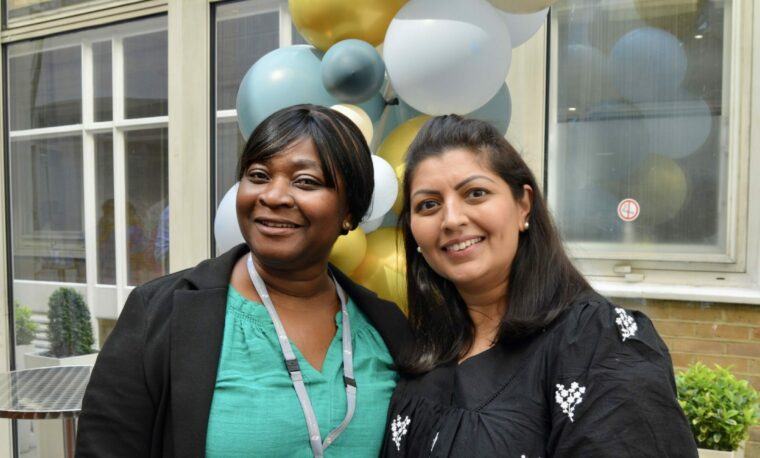What is inpatient treatment?
There are times when inpatient treatment, also known as residential treatment, is a necessity for patients suffering from mental health disorders. It provides intensive 24-hour care and risk monitoring. This can be essential when a patient poses a serious risk of harm to themselves and/or others. It can also be essential if a patient has acute disturbances of mood, behaviour or thinking; or requires a high dosage of intensive medication which may be associated with side effects. It can also be highly appropriate for patients who find they need further support than outpatient or day therapy can provide. It can be a huge source of emotional support as patients are made to feel safe, nurtured and supported around the clock.
Prior to accessing any type of treatment at Nightingale Hospital, all patients are comprehensively assessed. Through this process, our clinicians can determine which tier of treatment (either outpatient, day patient or inpatient) is best suited to the individual. In instances of psychiatric emergencies, admissions can take place without an outpatient assessment.
Nightingale Hospital London has specialist mental health inpatient units for adults over 18; split into general mental health, OCD and related disorders, addictions, and eating disorders. Some of our wards are same-sex and based on your condition, you may be placed on a same-sex ward.
All of the wards at the hospital are staffed by an expert team of specially trained mental health nurses and ward doctors. In addition to delivering around-the-clock care, our nurses are uniquely trained to care for patients of all acuity and complexity levels. All inpatients at Nightingale Hospital are under the care of a consultant psychiatrist, with whom they have direct contact at least two times a week.
What to expect from inpatient treatment
Inpatient therapy programme
Group therapy is an integral part of treatment at Nightingale Hospital. The majority of inpatient programmes are made up of group therapy sessions. Our group therapy programmes are comprehensive and specific to each service (general psychiatry, addictions and eating disorders).
Group therapy provides the opportunity for patients to challenge the way they see themselves and allows them to learn new ways of being in the world. The core group therapy programme takes place 7-days a week and consists of up to four groups a day. Depending on what you are seeking treatment for, you will be exposed to a mix of therapy types. This usually includes a combination of cognitive behavioural therapy (CBT), interpersonal therapy (IPT), expressive therapies, skills workshops, wellness sessions and psycho-educational groups.
The goal is for patients to attend all groups on offer in order to get maximum therapeutic benefit from their stay. Where needed, additional one-to-one therapy can also support the work done in the group programme.
In addition to our therapy services, our programmes include a well-being programme to support your recovery. This programme provides sessions on a variety of well-being themes including sleep and energy, self-image, mindfulness, fitness and exercise, nutrition, art therapy, massage and yoga.
A typical day will start with breakfast from 8:00 am before the first group starts around 9:00 am. You will usually have three or four structured activity groups before finishing the day at approximately 5:00 pm, depending on what you are seeking treatment for.
Specialised inpatient treatment
Nightingale Hospital offers specialised inpatient programmes for general mental health, OCD and related disorders, eating disorders and addictions.
- Read about inpatient treatment for eating disorders
- Read more about inpatient treatment for addictions
- Read more about inpatient treatment for OCD and related disorders
Length of inpatient treatment
The length of inpatient treatment depends on numerous factors. These can include the severity of your condition, funding resources, insurance benefits available to you, and other practical aspects including family and work commitments.
Hospital facilities
Our hospital is located within a beautiful and historic English site, dating back to 1902. Each patient has their own room with a television and all rooms are equipped with an ensuite toilet and shower or bath.
The hospital’s restaurant is open for breakfast, lunch and dinner daily. It offers an extensive daily menu. Vegetarian and vegan options are available, and any specific dietary or religious requirements can be catered for.
Exercise is an integral part of overall health. Nightingale Hospital offers a gymnasium for patient use when an individual is not participating in group therapy programmes. A personal trainer employed by the hospital will offer patients an initial assessment, and then tailor an exercise programme for them based on their fitness level and goals. This is a free service.
We have the convenience of an on-site pharmacy, located on the ground floor of the hospital. This is led by a team of pharmacists who specialise in mental health medication and who can offer expert advice. All patients can access this service.
Outcomes
All patients will be subject to HoNOS and CORE; in addition to specialist and particular measures of effectiveness utilised by our specialist therapy staff.
Funding treatment
Outpatient appointments, day therapy, and inpatient treatment at Nightingale Hospital can be accessed via private medical insurance or can be self-funded.
Nightingale Hospital is accredited by all major private medical health insurers and works with many different medical insurance and medical assistance companies from all over the world. In addition, the hospital accepts patients funded by embassies, corporate organisations, management companies, and other third parties. Prior to treatment, patients who are funding treatment via private medical insurance will be asked to provide policy details, so that their individual level of cover can be estimated and pre-authorisation for treatment obtained.
Self-funding patients will be required to provide a upfront payment before accessing day therapy or inpatient treatment.
Preparing for your inpatient admission at Nightingale Hospital
Arriving at Nightingale Hospital for inpatient treatment
When you arrive, a member of our admissions team will welcome you at reception and take you to your room. You will be guided through the registration process. After you have settled in, you will be seen by a ward doctor and a nurse who will carry out your initial assessment. You will be assigned a key nurse who will support you throughout your stay. You will also meet a member of the therapy team to discuss your therapy requirements.
An initial assessment on the day you are admitted enables a tailor-made treatment programme that meets your specific and individual needs to be developed. We hope and will encourage you to participate in all your careful planning, be involved in decisions about your treatment and help you to voice concerns you have or changes you would like to make. Your treatment programme is continually assessed to ensure you are receiving the best care, and changes to care plans and medication are quickly implemented.
You will see your consultant a minimum of two times a week and progress will be reviewed regularly.
A full multidisciplinary team work together to support patients on their recovery journey. Nightingale Hospital has a multidisciplinary team consisting of consultant psychiatrists, doctors, therapists, occupational therapists, dietitians, nurses and healthcare assistants. We have over 70 therapists, all of whom are expertly trained and experienced working in a variety of disciplines, some from locations all over the world.
What to bring with you
Please bring with you casual clothes that you feel most comfortable in, toiletries (except aerosol sprays) and items you wish for your free time such as books, magazines, and laptops. There is a washing machine and a tumble dryer in each ward that you are welcome to use. Before you are admitted to the hospital, you will receive all documentation necessary to prepare you for your stay, including a list of things you can and cannot bring into the hospital.
Your safety
The majority of patients at Nightingale Hospital London are informal patients. This means that you have freedom of movement in and out of the hospital. However, nurses will complete regular assessments with you to identify any risk factors that may affect you during your stay. These assessments may mean that closer levels of observation of you or escorted trips out of the hospital are advised. Remember if this is the case the team are only concerned about your well-being so please talk to them about their advice.
Discharge and ongoing care
At discharge, an individually-tailored aftercare plan is devised in conjunction with you and your needs. We offer the choice of stepping down to a day patient programme or outpatient care in addition to the free aftercare support group.
Nightingale Hospital offers free support groups for patients who have completed their inpatient and/or day therapy programmes. We understand there can be challenges after your treatment and therapy, which is why we would like to further help with your transition by providing these free groups for one year following your discharge.
The purpose is to provide support and encouragement in a safe and non-judgmental environment. Like the groups, you participated in during treatment you are encouraged to share your feelings and experiences with the group. Hearing how others are beginning to conquer their problems one week can give hope and possibly useful ideas to others who are struggling.
Nightingale Hospital inpatient brochure
Please contact us to receive more information about our inpatient treatment options.
Read our FAQ section for more information about inpatient stays.
Make an enquiry
Have a question about our inpatient treatment? Make a confidential enquiry now.
Enquire nowFurther information
Useful links for...
-
Patients
-
Families










